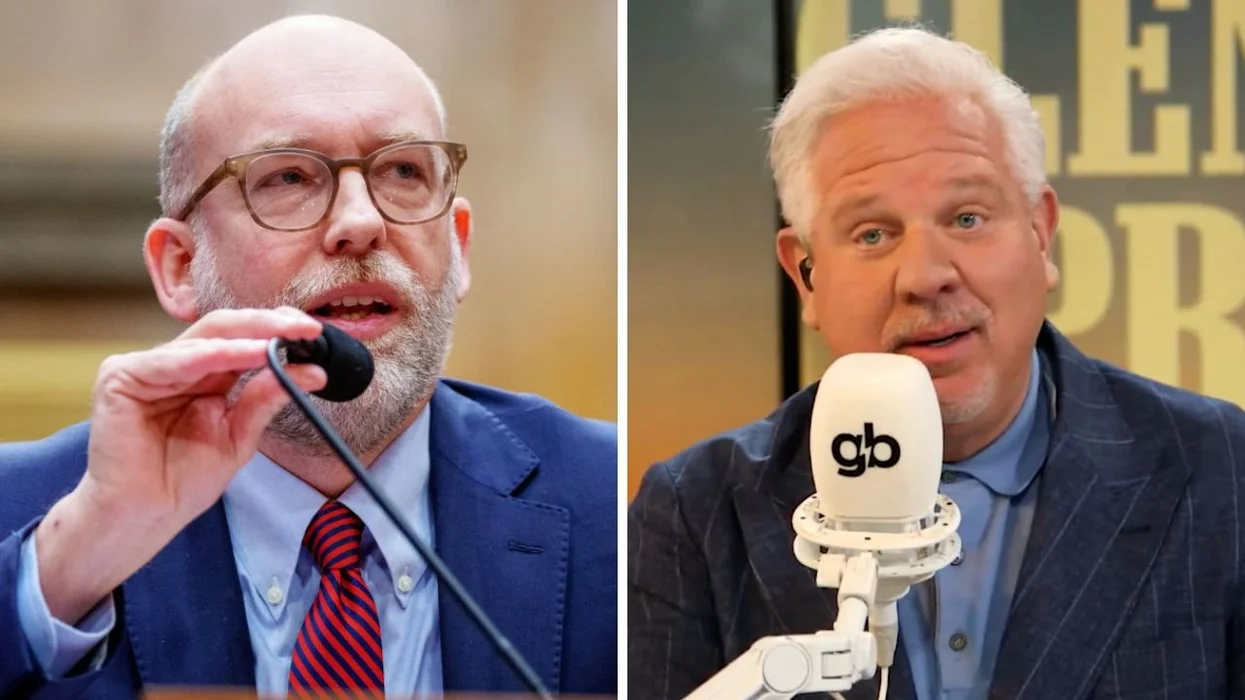A court ordered that the U.S. Army must pay a defense contractor's legal expenses as it fought lawsuits brought against it by service members and former employees who claim they were sickened after being exposed to toxic chemicals on a job site in Iraq.
 The KBR logo is illuminated during the Defence Systems and Equpment International (DSEi) at the Excel Centre on September 11, 2007 in London, England. (Daniel Berehulak/Getty Images)
The KBR logo is illuminated during the Defence Systems and Equpment International (DSEi) at the Excel Centre on September 11, 2007 in London, England. (Daniel Berehulak/Getty Images)
In court documents, judges wrote that it is undisputed "that there were persons at the plant who were repeatedly exposed to Sodium Dichromate powder in the soil and in other areas of the plant over a period of time through touch or inhalation."
Sodium dichromate, the opinion written by Administrative Judge Jack Delman with the Armed Services Board of Contract Appeals with two other judges agreeing, contains hexavalent chromium, which is a "toxic carcinogenic substance."
Contractor KBR, which held a contract with the Army dubbed Restore Iraqi Oil, appealed to the court for the military to pay its legal expenses in defense of lawsuits brought against it for this exposure, citing an indemnification clause and other documents.
Delman wrote, "we believe that appellant has shown an 'unusually hazardous risk' to which indemnification applies under the Indemnification clause."
"The government contends that it did not intend under the Indemnification clause to indemnify appellant for third-party claims and related litigation costs attributable to appellant's own misconduct, and spends much of its opposition citing to the evidence of record supporting this alleged misconduct. The government's contention, however, is not supported by the language of the Indemnification clause," Delman continued.
 Ray Rodon, from Kellogg, Brown and Root (KBR), a division of Halliburton, stands in front of a burning oil well at the Rumayla Oilfields March 23, 2003 in Iraq. Several oil wells have been set ablaze by retreating Iraqi troops in the Ramayla area, the second largest offshore oilfield in the country, near the Kuwaiti border. (Ian Waldie/Getty Images)
Ray Rodon, from Kellogg, Brown and Root (KBR), a division of Halliburton, stands in front of a burning oil well at the Rumayla Oilfields March 23, 2003 in Iraq. Several oil wells have been set ablaze by retreating Iraqi troops in the Ramayla area, the second largest offshore oilfield in the country, near the Kuwaiti border. (Ian Waldie/Getty Images)
Granting this appeal, the Project on Government Oversight noted, means that the Army would have to reimburse KBR for over $30 million it has used in legal defenses, and that might not be all:
The government is also on the hook for legal judgments and settlements. One toxic exposure lawsuit filed in Oregon resulted in an $81 million judgment against KBR that was recently overturned on appeal. Another lawsuit raising similar claims is pending in Texas.
KBR's Executive Vice President and General Counsel Eileen Akerson said at the time that a judge ruled in the company's favor that it was "another major step in resolving the few remaining legacy tort claims related to KBR's work supporting the U.S. military in Iraq."
"There is no medical evidence – scientific or otherwise – that the individuals who have filed claims are sick because of the time they spent at Qarmat Ali," KBR's Vice President for Litigation Mark Lowes, said, according to the Oregonian, of those who served at the facility in Iraq.
Still, the company has been criticized for possibly dragging out the litigation, which dates back to the mid-2000s, and for other costs that the military, which uses taxpayer dollars, is now on the hook for.
In 2012, Sen. Ron Wyden (D-Ore.) sent then-Defense Secretary Leon Panetta a letter stating that KBR was "essentially ... handed a blank check with the Pentagon's signature."
"Senior attorneys are billing at $750 per hour, and junior associates are billing at $300-$400 per hour," Wyden wrote. "KBR has also billed for 'expert' testimony in excess of $500,00, and KBR attorneys and consultants are flying first-class to hearings and depositions, which have thus far included numerous international trips. KBR experts have even admitted to billing for time when they are asleep. If KBR alone were paying for this extravagance, they would be entitled to do so. However, when the US taxpayer is on the hook I must object."
More recently, Wyden along with other lawmakers, wrote to Defense Secretary Ash Carter criticizing KBR for turning around and suing veterans for legal fees.
“We write to express our outrage that one of your contractors, Kellogg Brown & Root (KBR), is going after 12 sick veterans as part of the ongoing Qarmat Ali legal battle,” the lawmakers wrote to Secretary Carter in June. “We feel confident that Americans don’t want their tax dollars supporting these scorched-earth tactics and, because the Department of Defense (DoD) may be responsible for KBR’s legal bills, we urge you to exercise your authority, take over this litigation, and bring it to a fair conclusion for all parties.”

 The KBR logo is illuminated during the Defence Systems and Equpment International (DSEi) at the Excel Centre on September 11, 2007 in London, England. (Daniel Berehulak/Getty Images)
The KBR logo is illuminated during the Defence Systems and Equpment International (DSEi) at the Excel Centre on September 11, 2007 in London, England. (Daniel Berehulak/Getty Images)
 Ray Rodon, from Kellogg, Brown and Root (KBR), a division of Halliburton, stands in front of a burning oil well at the Rumayla Oilfields March 23, 2003 in Iraq. Several oil wells have been set ablaze by retreating Iraqi troops in the Ramayla area, the second largest offshore oilfield in the country, near the Kuwaiti border. (Ian Waldie/Getty Images)
Ray Rodon, from Kellogg, Brown and Root (KBR), a division of Halliburton, stands in front of a burning oil well at the Rumayla Oilfields March 23, 2003 in Iraq. Several oil wells have been set ablaze by retreating Iraqi troops in the Ramayla area, the second largest offshore oilfield in the country, near the Kuwaiti border. (Ian Waldie/Getty Images)


